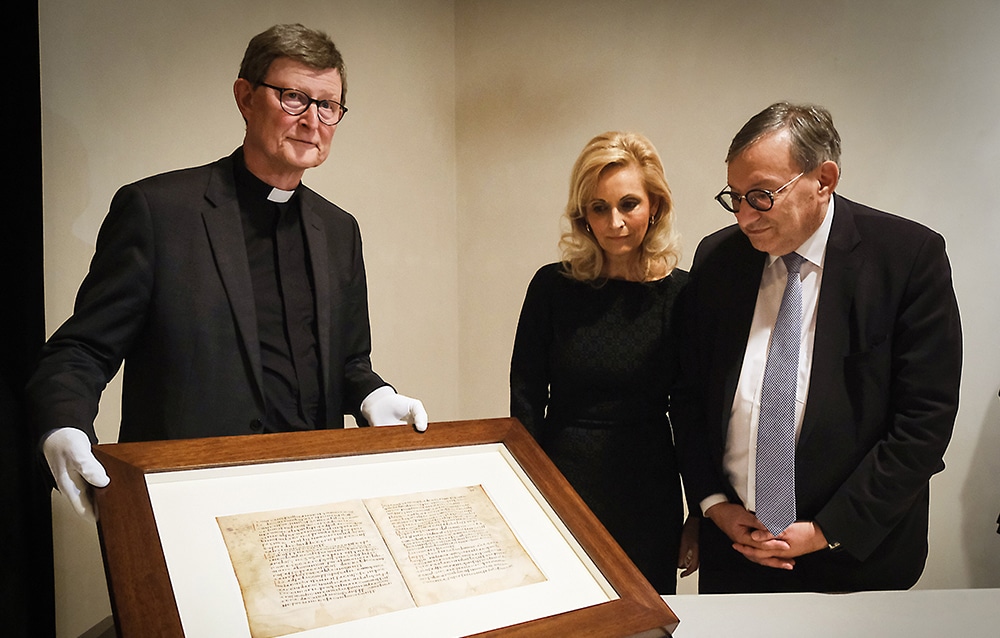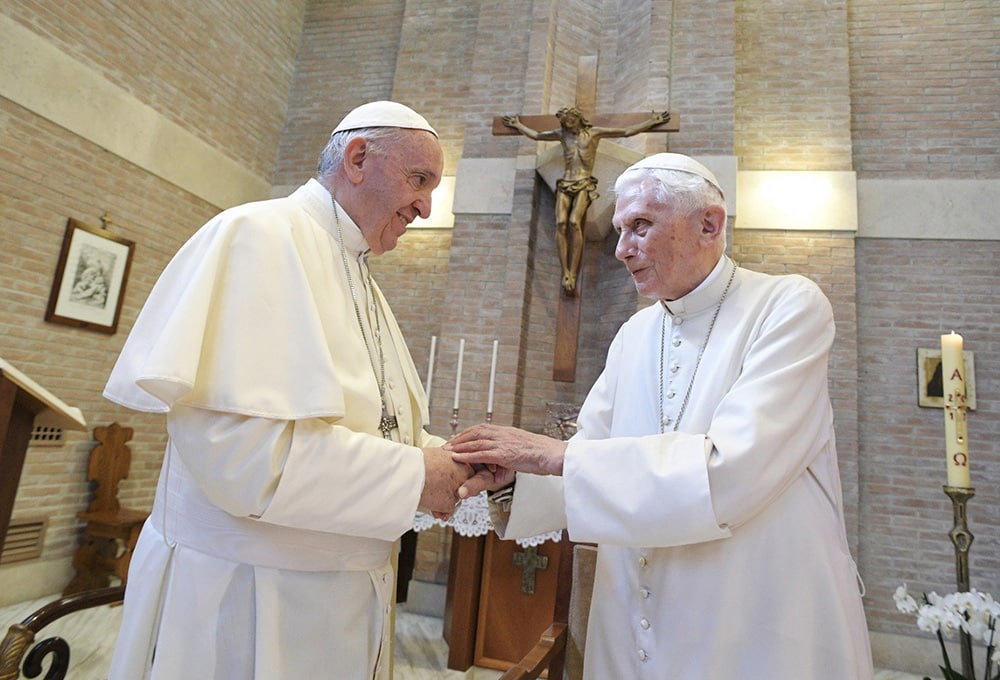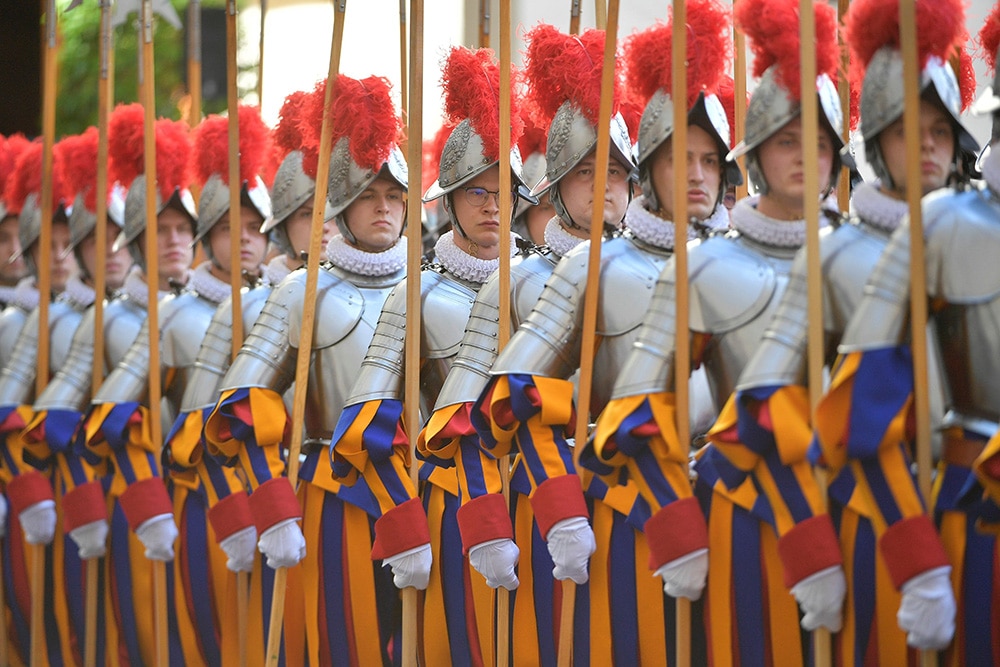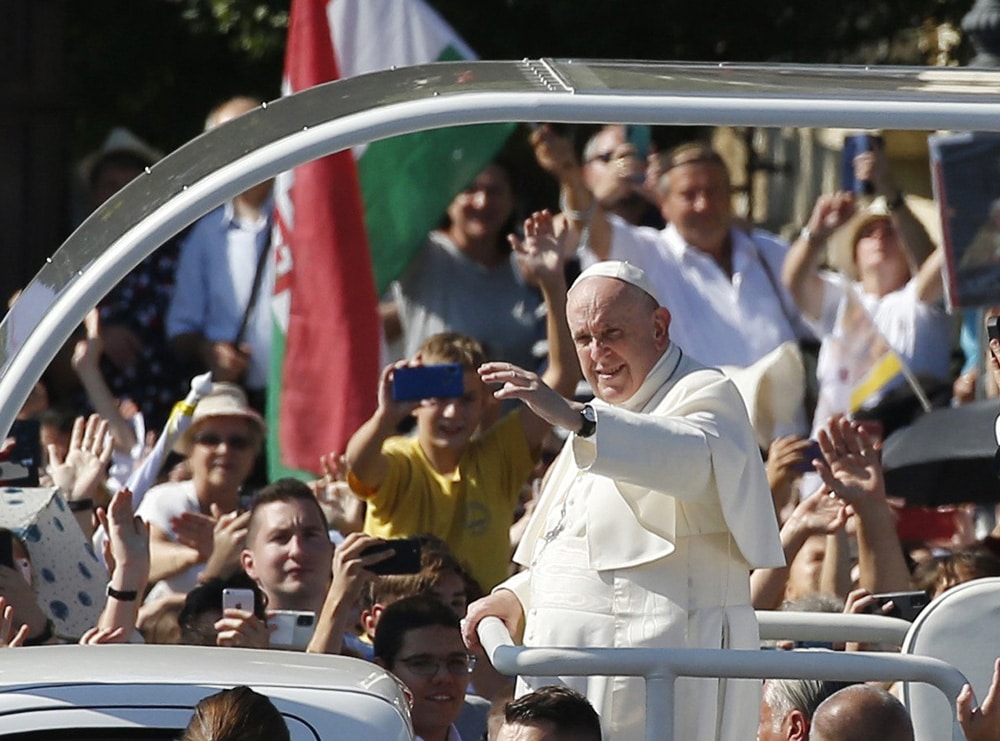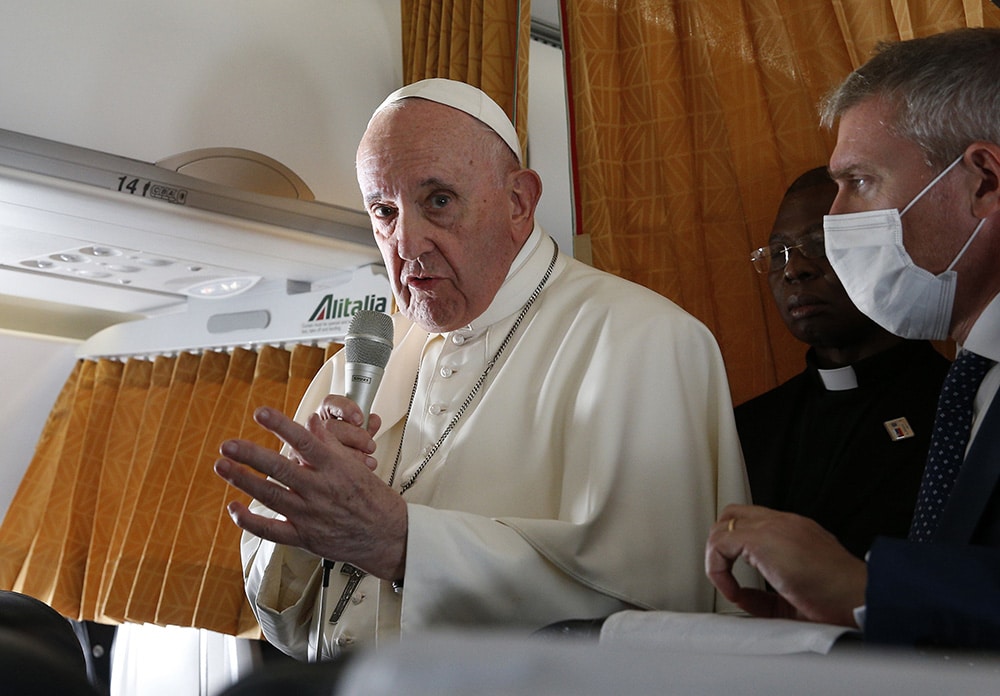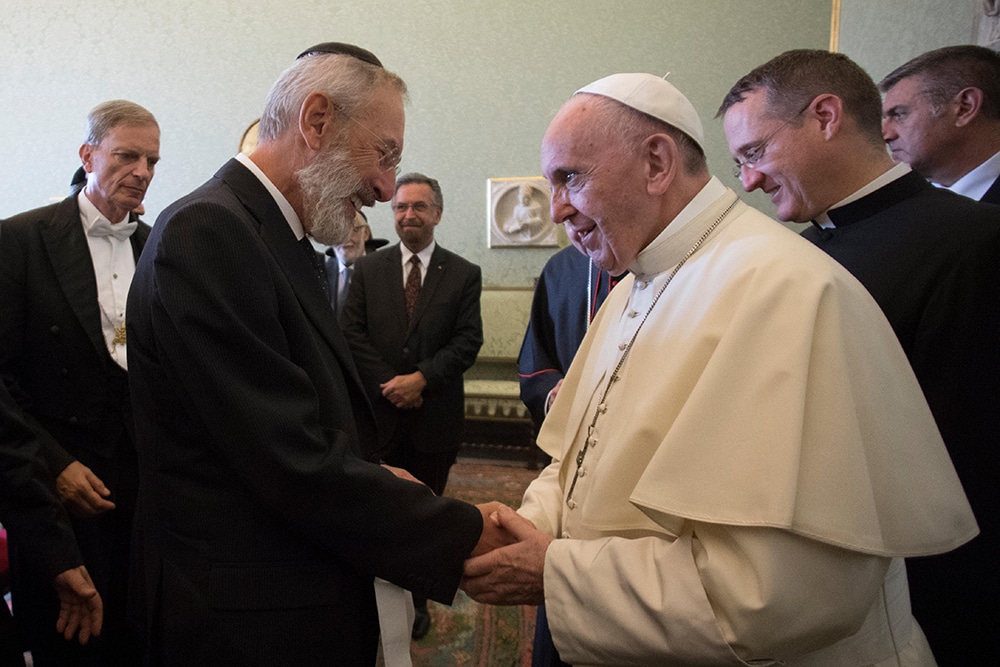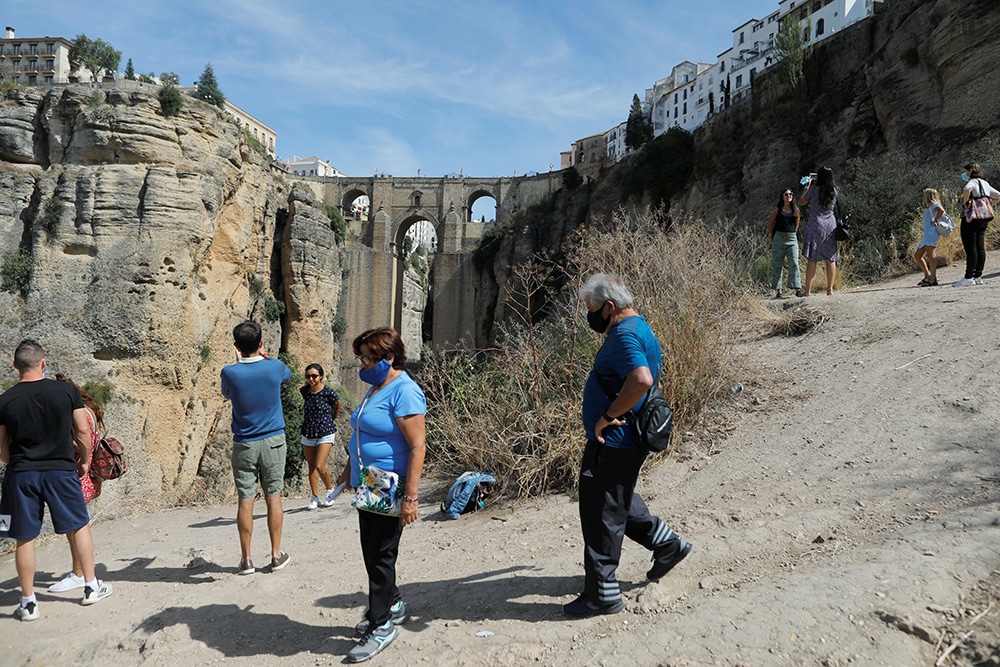COLOGNE, Germany (CNS) — The oldest record of 1,700 years of Jewish life in Germany has arrived in Cologne, on loan from the Vatican Library.
The German Catholic news agency KNA reported two sheets from the sixth century are a copy of an edict sent to Cologne by the Roman Emperor Constantine in 321; the edict allowed Jews to become members of city councils.
The document is considered the oldest written record of Jewish life north of the Alps, and the date it refers to is the basis for the celebrations this year to mark 1,700 years of Jewish life in Germany.
The sheets will be on display from Sept. 15 to Oct. 11 in an exhibition organized by the Kolumba Art Museum of the Archdiocese of Cologne and the Cologne Jewish Museum, KNA reported.
Cologne Cardinal Rainer Maria Woelki and Abraham Lehrer, vice president of the Central Council of Jews, were present as the sheets, enclosed in a frame, were taken out of a special transport box. Cardinal Woelki called it a “moving moment.” He thanked the Vatican Library for the loan, a request turned down several times.
Lehrer said Pope Francis personally intervened to make the loan possible after the governor of North Rhine-Westphalia, Armin Laschet of the Christian Democratic Union, had asked him to. Lehrer added that he hoped the “extraordinary historical testimony” would attract the public like a magnet. If it helped to push back anti-Semitism, much would have been achieved, added Lehrer, a board member of Cologne’s synagogue community.
Cardinal Woelki said the edict showed that in 321, Jewish citizens were part of life as a matter of course and were included in the city government.
“For me, the document is a wonderful symbol of fraternal solidarity,” he said. Especially in times when anti-Semitic hostility was on the rise again, it must be made clear that Jews belong to German society, he said.

